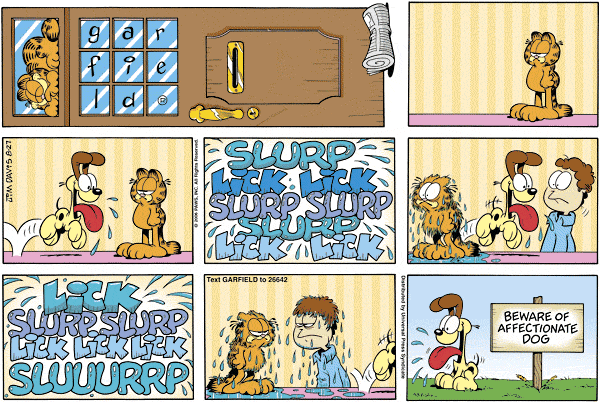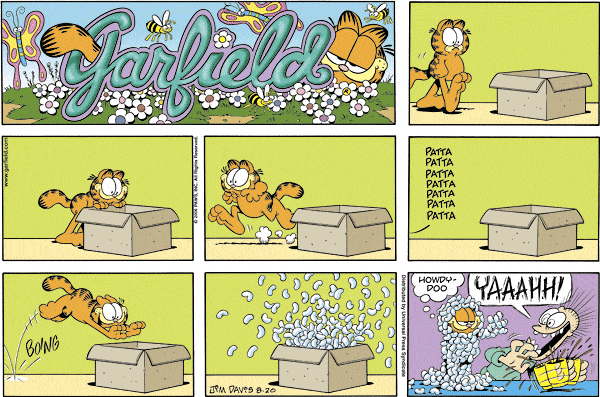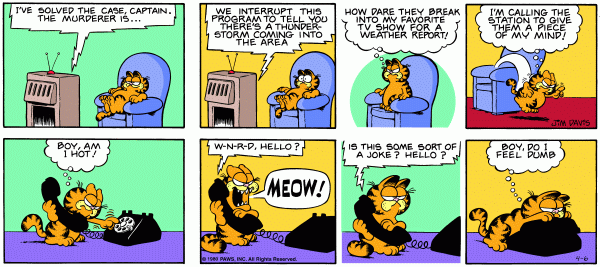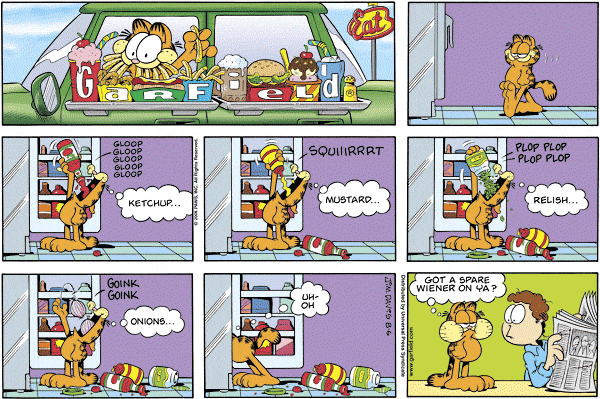
Panel One: A classic Garfield last-panel-reveal joke. These usually sustain our interest because of a character's inexplicable, strange behavior, or an out of place, unfamiliar element. Today we join the action midstream, and all the reader wonders is "what is Garfield taunting Jon about this time?"
Once we find out the answer and reevaluate the story, a new question is provoked: did Jon come home from the DMV and ask his cat's opinion of his new photo? Well of course he did.
Panel Two: Jon's arc through these three panels is not the simple embarrassment of a bad driver's license photo, but the dual-motivated surprise and hurt of ego deflation and betrayal by a confidant. Jon obviously thought the picture was either flattering, requested damage-assessment, or had handed over the card for unrelated inspection, and reacts as if not expecting this jarring outburst from Garfield. As Tweetie once said, "he don't know me very well, do he?"
Panel Three: Garfield's ironic appreciation of the photo because it embarrasses Jon has further weight than simple insult, because Garfield makes no effort to improve his personal appearance. Though the cat is outrageously vain, the quality is baseless pride, entirely delusional and narcissistic. When Garfield teases Jon about the photo, the taunt carries the implicit message that since he could not be wounded in the same way, Garfield is laughing at. Not with.
Also Garfield seems to inflate in size for no reason.































